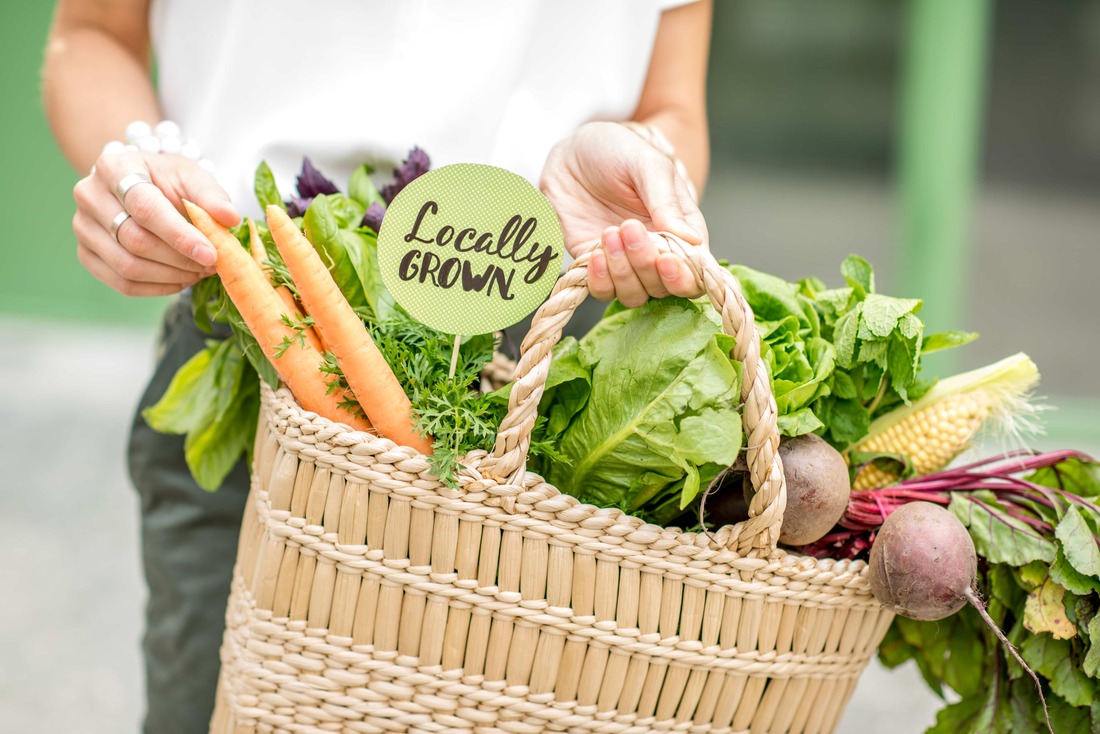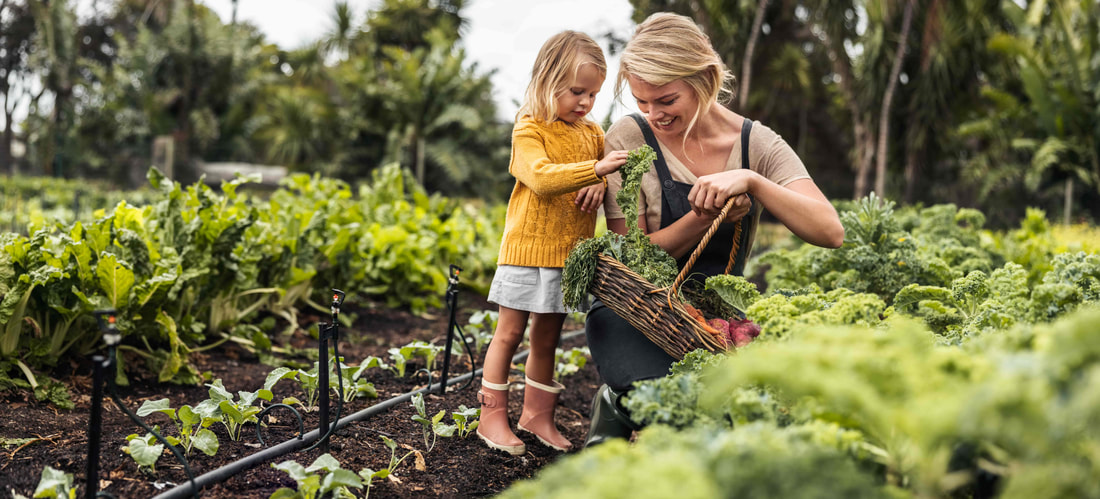|
Written by: Claudia Haller NBC-HWC
In today’s society, there is a lot of buzz about sustainability. Many of us have an incentive to keep rapidly consuming and no incentive to stop. If everyone else gets to keep living in this fast-paced, materialistic world, why can’t I? The issue is, if everybody thought this way, we would very quickly have no Earth left to live on. In fact, if everybody lived like most U.S. residents, we would need the resources of 5 Earths to keep up with our ecological footprint. So, yes. Living sustainably matters.
Our food choices not only impact our health but also the health of the planet. From waste production to transportation, there are many steps between growing food and putting it on your table. One of the most significant ways we can contribute to a greener future is by adopting a more sustainable approach to our diets. Here are some small changes that you can make in your diet that will have a big impact on the environment. Reduce Your Meat Consumption Animal agriculture is a major contributor to greenhouse gas emissions and water pollution. Cattle farms require an enormous amount of land— think of all the crops these cows need to eat. As a result, a significant number of forests have been cut down to make space for these animal farms. Even if you make a weekly vegetarian night (think “Meatless Mondays”) or cut out meat from one of your three meals, it will make a huge difference. When you do eat red meat, try to buy local, grass-fed, and organic beef. Cattle that eat grass instead of grains are not only healthier for your body but also significantly better for the environment. When you eat seafood, look for sustainably sourced options, such as those certified by organizations like the Marine Stewardship Council (MSC) which ensures that your food was obtained in a way that combats environmental destruction.
Eat Local-Grown Food
We are lucky to live in such a globalized society, where all fruits and veggies are available year-round thanks to imports from other countries. However, transportation, both by air and land, takes a considerable toll on the environment. Try to buy your food from local farmers instead and eat more seasonally. Buying locally grown and seasonal produce not only supports local farmers but also reduces the energy and resources required for transportation. While local farmers may not grow everything year-round, the meat, fruits, and veggies you get will be of better quality and much fresher. Use What You Buy Food waste is a big problem in the Western world. Studies have shown that the average American household throws away over 30% of their food. Before you go to the grocery store, make a list of all the food you intend to buy and what you will use it for. Consider the expiration dates and the quantity of food you can eat within that time frame. To combat excessive amounts of waste, plan your meals, store food properly, and find creative ways to use leftovers. Composting is another eco-friendly solution for food scraps.
Purchase No-Plastic Produce
Most of the food we buy at grocery stores is heavily packaged in plastic. All of that plastic ends up in a landfill or ocean somewhere. However, produce such as fruits and veggies can often be purchased without packaging. To go above and beyond, buy some reusable produce bags to use in place of the plastic produce bags provided by the store. Reusable produce bags are inexpensive, they help the environment, and they look much nicer in your fridge. When you purchase dry goods, such as beans, nuts, seeds, or whole grains, try to buy from the bulk aisle and bring your own containers. They will be more economical while also saving on unnecessary plastic. Eat Whole Foods Vs. Processed Foods Generally, if you stick to unprocessed whole foods, you’ll be doing yourself (and the planet) a whole lot of good. Organic and locally grown fruits and veggies will reduce your carbon footprint and contain more flavor than imported ones. Whole grains, such as quinoa and oats, are also better than refined white grains. When you buy soy products, such as tofu or tempeh, make sure to buy organic and GMO-free products. Other great examples of whole foods include nuts, beans, legumes, and seeds. The need for sustainable eating has never been more urgent. By making sustainable choices, we can reduce the harmful impacts of the food industry including carbon emissions, deforestation, and habitat destruction. Habits such as meal-planning, diversifying your diet, supporting local farmers, and being more conscious of your meat consumption would be beneficial for the Earth and your own health. Remember that when it comes to the environment, every bit helps; every meal is an opportunity to make a positive impact on our world. Allow yourself to adopt these habits incrementally by making small significant changes. Your body and the Earth you inhabit will be eternally grateful.
If you are ready to implement sustainability into your health ane wellness journey improve your diet and your life overall, then working with a health coach might be the perfect solution for you. During a strategy session, we will discuss your goals and come up with a plan that is tailored specifically for you. If you are ready to take action and create the life you love, click here now to schedule your free call.
Remember, one of the best ways to lead a sustainable lifestyle is by educating yourself. Check out the following resources to learn more about learn about the impact of your choices: For a quick glance at your ecological footprint based on your lifestyle choices, check out the link here: https://www.footprintcalculator.org/home/en For a wide variety of tips and resources on how to eat and cook more sustainably, check out the Foodprint organization here: https://foodprint.org/eating-sustainably/ For an academic journal on sustainable agriculture and diets as the solution to the global challenges of climate change and the obesity epidemic, click this link: https://www.sciencedirect.com/science/article/pii/S2211335522001851
Disclaimer: The views and opinions expressed in this guest blog post are solely those of the author and do not necessarily reflect the official policy or position of our website. We take no responsibility for any errors or omissions in the content provided. The information shared in this post is intended to be informative and educational, but it is always essential to conduct further research and seek professional advice where appropriate. We encourage our readers to form their own opinions and perspectives based on multiple sources and individual judgment.
0 Comments
Leave a Reply. |
take control of your health.Connect with a board certified coach to help you succeed with health changes. COACHES:
|





